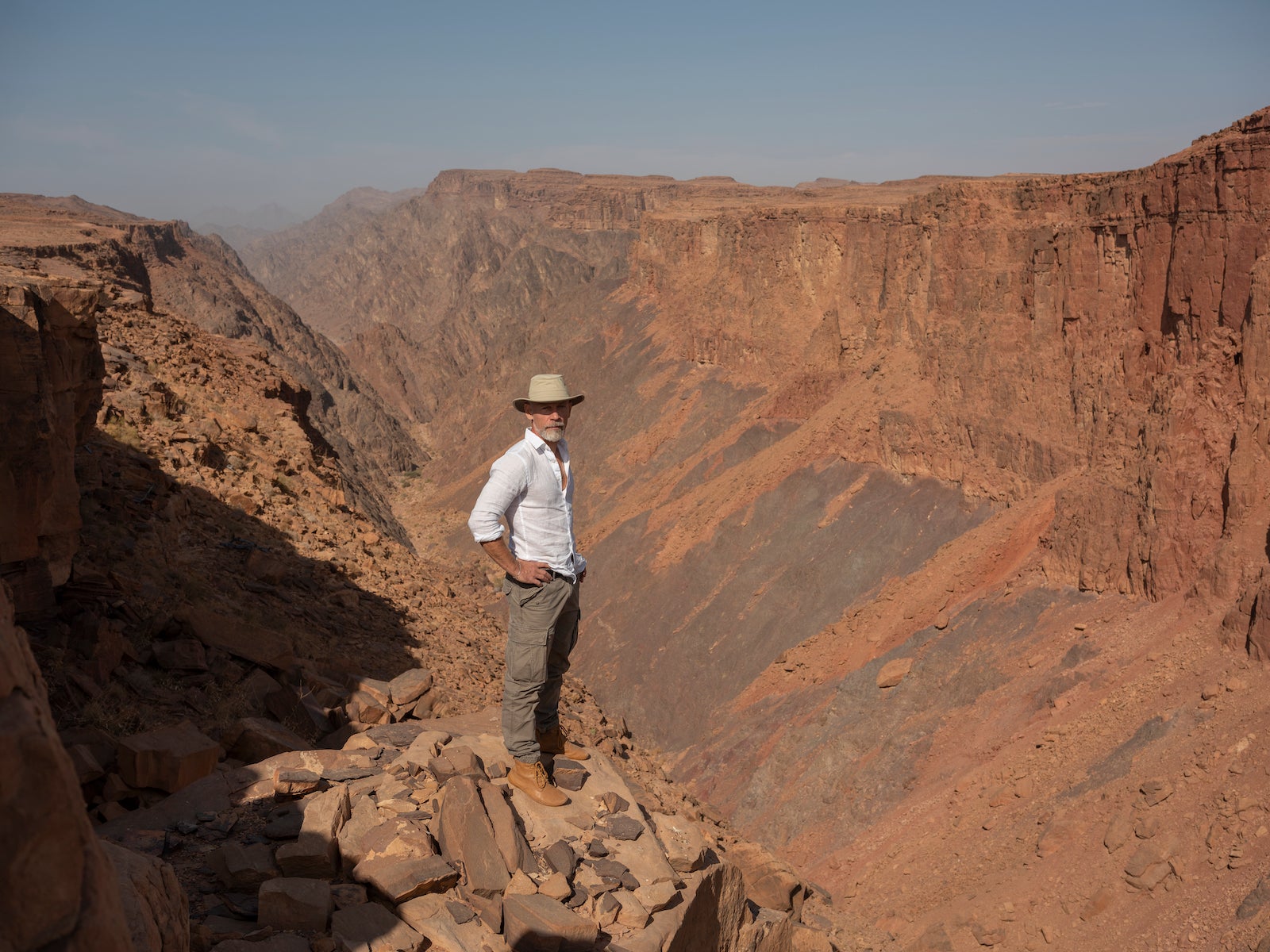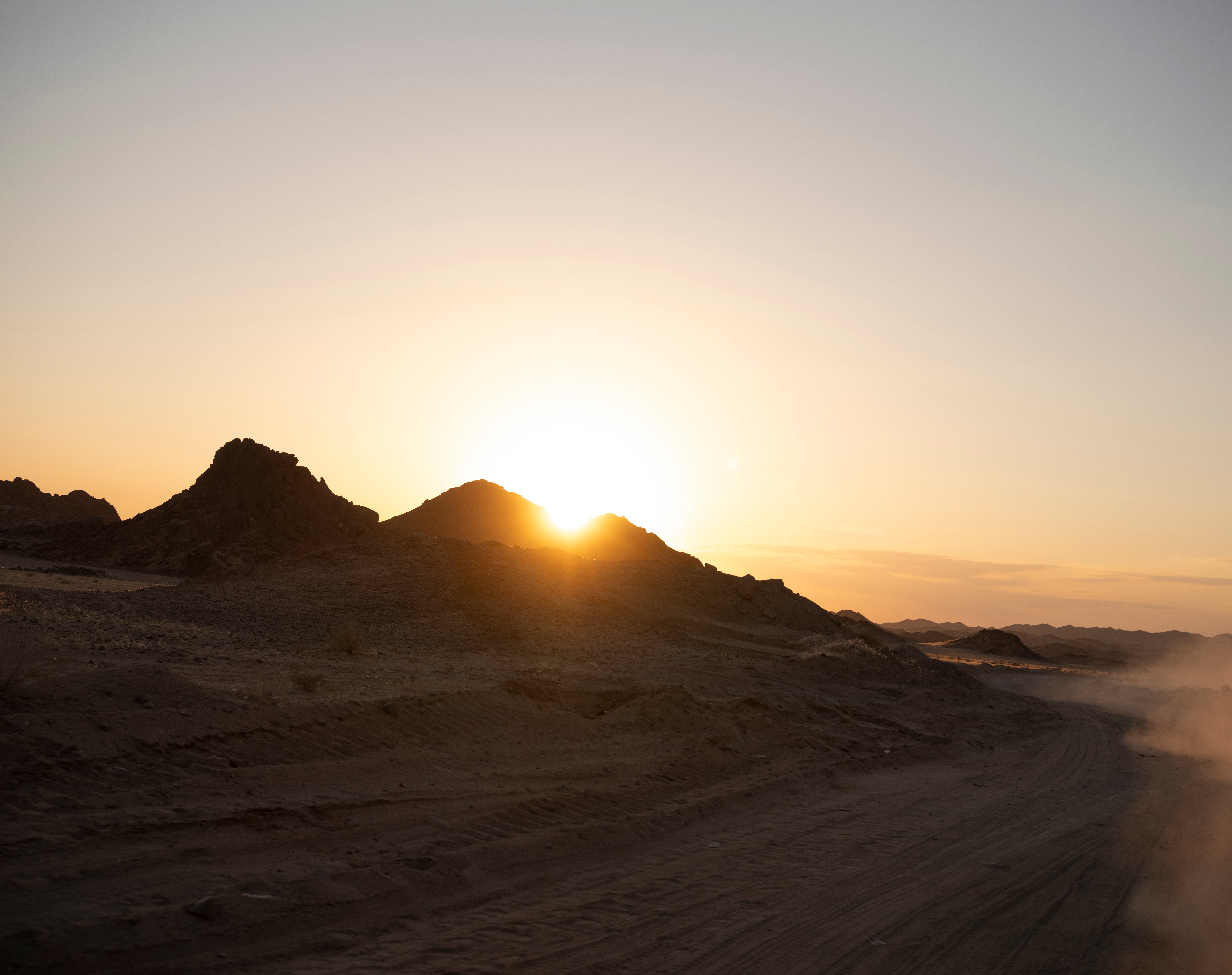‘We will be rewilding the lands and sea on a scale never before attempted’
A smart and sustainable region in the northwest of Saudi Arabia, NEOM plans to protect 95 per cent of its land and sea as a nature reserve

The name NEOM is receiving increasing recognition around the world.
Perhaps best known as the future home of THE LINE, a futuristic, carbon-neutral city currently under construction, NEOM aspires to deliver fresh solutions to global challenges, while redefining livability, business and conservation.
NEOM will be home to one of the world’s largest nature reserves: a 25,000 sq km stretch of wilderness.
It’s part of an environmental revolution in the region that will see 30 per cent of Saudi Arabia dedicated to rewilding and regenerating the land by 2030. The transformation is not confined to NEOM: the Saudi Green Initiative is designed to bring all the Kingdom’s efforts within the area of sustainability, climate change and energy transition under one umbrella.
A smart and sustainable region in the northwest of Saudi Arabia, NEOM plans to protect 95 per cent of its land and sea as a nature reserve. The ground-breaking giga-project is making a substantial global commitment to conservation and is embarking on an extensive rewilding program
Let’s explore the real NEOM in more detail.
The NEOM Nature Reserve is made up of two deserts, divided by a mountain range. The landscape of the upper desert – red earth and fantastical outcrops – is familiar to anyone who has seen Lawrence of Arabia and The Martian. They were filmed in Wadi Rum in Jordan, a small fragment of that northern desert.
In the mountains, which rise to an altitude of 2,500 metres, snow is not uncommon.

The southern lands are marked with the routes the ancient Nabatean people took from their capital, Petra, to Hegra, the extraordinary city they constructed in today’s AlUla. The land descends through wadis – the lifegiving, if ephemeral, streams that connect the mountains to the sea, through salt plains and dunes to the Red Sea and the Gulf of Aqaba.
Like coral reefs all around the world, the effects of climate change can be seen on some of NEOM’s reefs. But the corals of NEOM have an advantage that is attracting global attention.
Despite rising global water temperatures, the Red Sea corals have proved much more resilient than their relatives in other parts of the world.
Dr Paul Marshall, head of NEOM’s nature reserve, explains that they have transited between warmer and cooler zones and have successfully adapted to changes in temperature.
“It’s the only place in the world where corals have pre-adapted to high temperatures,” he says. “In their evolutionary journey from south to north through the Red Sea, our corals have acquired the genetic ability to tolerate higher temperatures. Everywhere else, corals can tolerate only the conditions that they’re living in. We have the ‘supers’ of the coral world.”
So, the work begins, in the sea and on land, including planting new mangrove forests to “regreen” the coastal fringe; with the aim of reversing desertification on land as part of an ambitious regreening program.
Dr Marshall takes issue whenever anyone talks about the Nature Reserve as a “pristine” environment. It may have escaped the curse of pollution and industrialisation but areas of it are denuded – overgrazed and tired, with ecosystems that could support a whole range of species left emptier than they should be.
“The problem we have is hunting and overgrazing,” says Dr Marshall. “For many decades, there has been no management of hunting, coupled with too many camels and too many goats. Livestock grazing has increased beyond sustainable levels with the introduction of wells and the supply of fodder, feed grown elsewhere and imported into the area.
“Then there’s been tree-felling as well, along with the over-extraction of groundwater. All these pressures have accelerated desertification and taken the animals from the landscape.
“But all of these pressures can be alleviated with careful management. We start with the enforcement of new bans on hunting and removing unsustainable livestock grazing. Then we rebuild the ecosystem. We will rewild the land and sea on a scale never before attempted.”
It’s called a “successional” approach to renewing the land. You start with the grasses and plants that stabilise the sand. Shrubs provide shelter for small mammals which are an important part of the food chain. You bring back the native trees, like the acacia.
The first part of the “active” regreening project, leading up to 2027, will concentrate on bringing back grasses, shrubs and trees to the coastal lowlands. In the succeeding eight years, the work will extend into the upper plains and the wadis.
What the reserve is not, says Dr Marshall, is “flat, boring desert.”
Dr Marshall spent his childhood exploring forests, oceans and deserts: he is a native of Australia, the driest continent on the planet. But nothing prepared him for the majesty and beauty he encountered in the heart of Arabia.
Soon after he arrived, he drove up a huge dune of red sand and when the going became too soft, he got out and walked.
“It had been raining. I saw this maze of canyons set amongst a carpet of red sand and a blanket of purple wildflowers, all set against this moody sky. I remember thinking, ‘you can’t truly understand what a desert is until you’ve been there – particularly when the seasons change.’
It’s one of the reasons I’m so excited about what we have planned to conserve these ecosystems.”
In the next article in this three-part series, we’ll look in more detail at just how that epic act of conservation and regeneration will happen.
Find out more about the MGI summit and SGI forum here: greeninitiatives.gov.sa

Bookmark popover
Removed from bookmarks